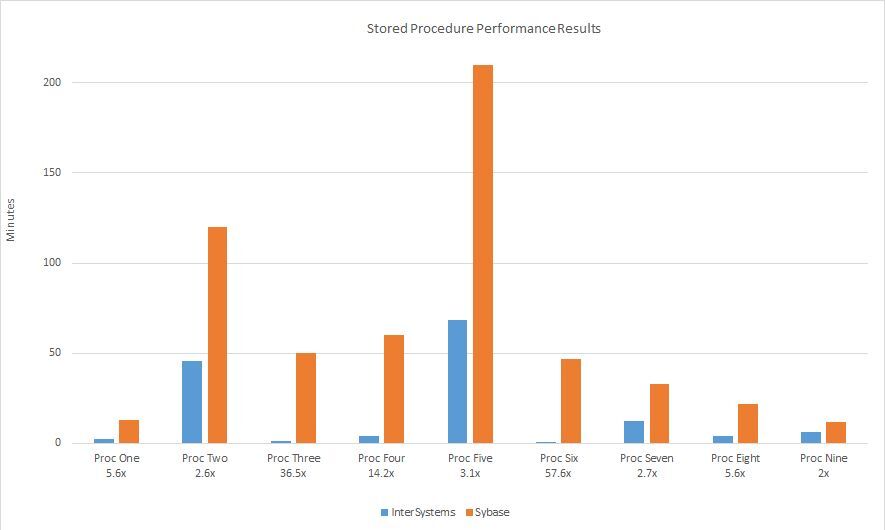Today there are thousands of active implementations of SAP Sybase Adaptive Server Enterprise (ASE) in production worldwide. While these applications tend to be mission-critical and some organizations may be hesitant to undertake a migration, a number of technical and business drivers are influencing the decision to migrate, including:
Processing Bottlenecks
Increasing data sizes and processing workloads can cause SAP Sybase ASE applications to slow or stop. For mission critical applications, these issues can cause significant damage to the business.
High Cost and Complexity to Scale
SAP Sybase ASE’s limited architecture makes it challenging for financial services organizations to easily and economically accommodate the current volatility of today’s markets and workloads. In addition, SAP Sybase ASE scales only vertically, but not horizontally. This means that organizations must procure larger hardware with more CPU and memory, which is more expensive than scaling out horizontally on commodity hardware.
Reduced Engineering and Technical Support
SAP’s recent reductions to Sybase’s engineering and technical support staff is a concern for many organizations.
However, migrating production SAP Sybase ASE applications to another data platform is not a simple endeavor, especially for applications that have been customized with extensive Transact-SQL (T-SQL) code.
InterSystems IRIS Data Platform
InterSystems IRIS® is next-generation data management software optimized for applications that must process ACID transactions with very high throughput, while simultaneously processing real-time analytic workloads on the incoming data with very low latency, and with the ability to scale both horizontally and vertically in a resource efficient manner. It natively supports a wide range of data types and models, including relational and non-relational, with one rich multi-model representation. It provides a wide range of embedded analytic capabilities including machine learning, distributed SQL, business intelligence, business rules, and natural language processing, as well as the ability to incorporate these algorithms into real-time augmented transactions.¹
Speeds and Simplifies SAP Sybase ASE Migrations
InterSystems IRIS data platform supports standard SQL and provides built-in capabilities to automatically migrate T-SQL commands, functions, and stored procedures without change.
Key features:
- Automated migration of schema, data, and stored procedures
- SAP Sybase ASE schema is fully supported
- SAP Sybase ASE stored procedures are fully supported and transparently recompiled
- Optimized Sybase CSV file bulk loader
- Support for synchronous and asynchronous mirroring
- Supports virtual machines, containers, cloud, and hybrid deployments
High Performance, Low Cost
InterSystems IRIS provides high performance for both transactions and analytics, is extremely resource efficient, and scales both horizontally and vertically, lowering infrastructure costs. Compared with SAP Sybase ASE, InterSystems IRIS consistently provides higher performance using less infrastructure.
White Glove Support
All InterSystems customers are supported by our Worldwide Response Center. InterSystems provides expert technical assistance to customers 24 hours a day, every day, and maintains support advisors in 15 countries around the world with specialists fluent in English, Spanish, Arabic, Chinese, Finnish, French, German, Hebrew, Hindi, Hungarian, Italian, Japanese, Korean, Portuguese, Russian, Swedish, Thai, and Welsh. Every InterSystems client immediately gets assistance from a highly qualified support specialist who truly cares about client success.

¹ According to Gartner, [a]ugmented transactions use various forms of augmented analytics — advanced analytics, artificial intelligence (AI) and machine learning (ML) — enabling concurrent analytical and transaction processing within a transaction or process. Hype Cycle for Data Management, 2019 31 July 2019 G00369950 Analyst(s): Donald Feinberg, Adam Ronthal
GARTNER is a registered trademark and service mark of Gartner, Inc. and/or its affiliates in the U.S. and internationally and is used herein with permission. All rights reserved. The GARTNER PEER INSIGHTS CUSTOMERS’ CHOICE badge is a trademark and service mark of Gartner, Inc. and/or its affiliates and is used herein with permission. All rights reserved. Gartner Peer Insights Customers’ Choice constitute the subjective opinions of individual end-user reviews, ratings, and data applied against a documented methodology; they neither represent the views of, nor constitute an endorsement by, Gartner or its affiliates. Gartner does not endorse any vendor, product or service depicted in its research publications, and does not advise technology users to select only those vendors with the highest ratings or other designation. Gartner research publications consist of the opinions of Gartner’s research organization and should not be construed as statements of fact. Gartner disclaims all warranties, expressed or implied, with respect to this research, including any warranties of merchantability or fitness for a particular purpose.


























